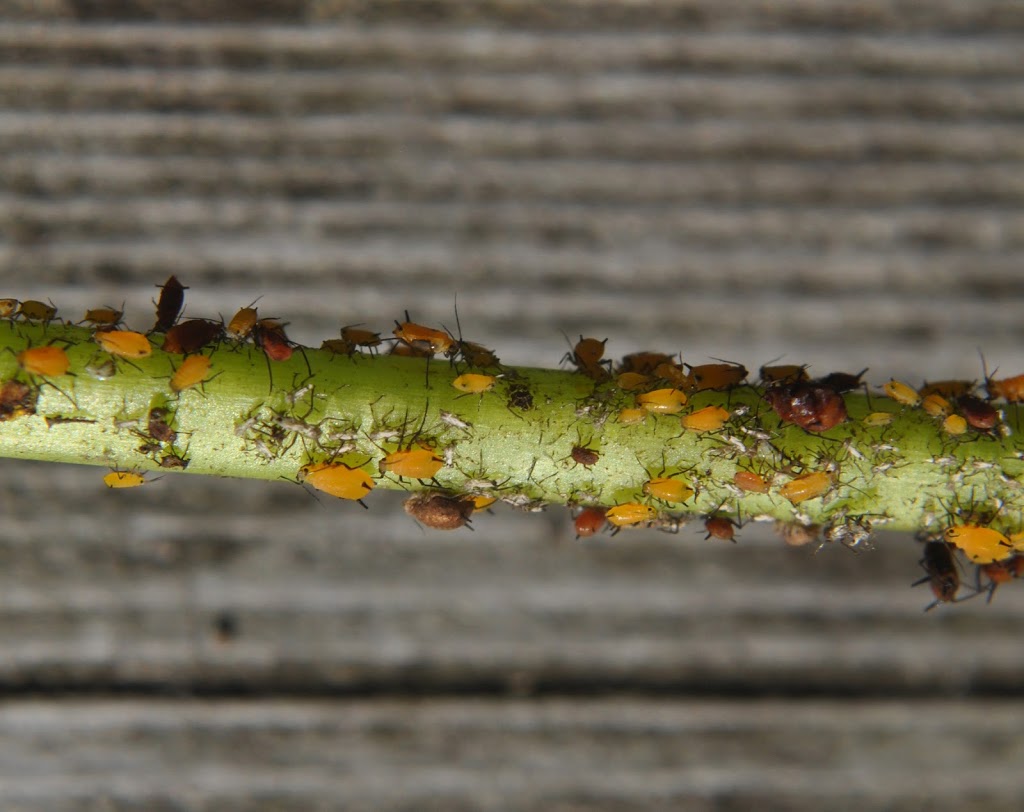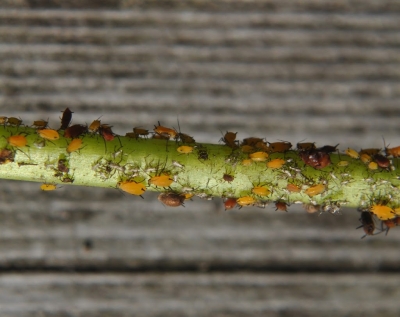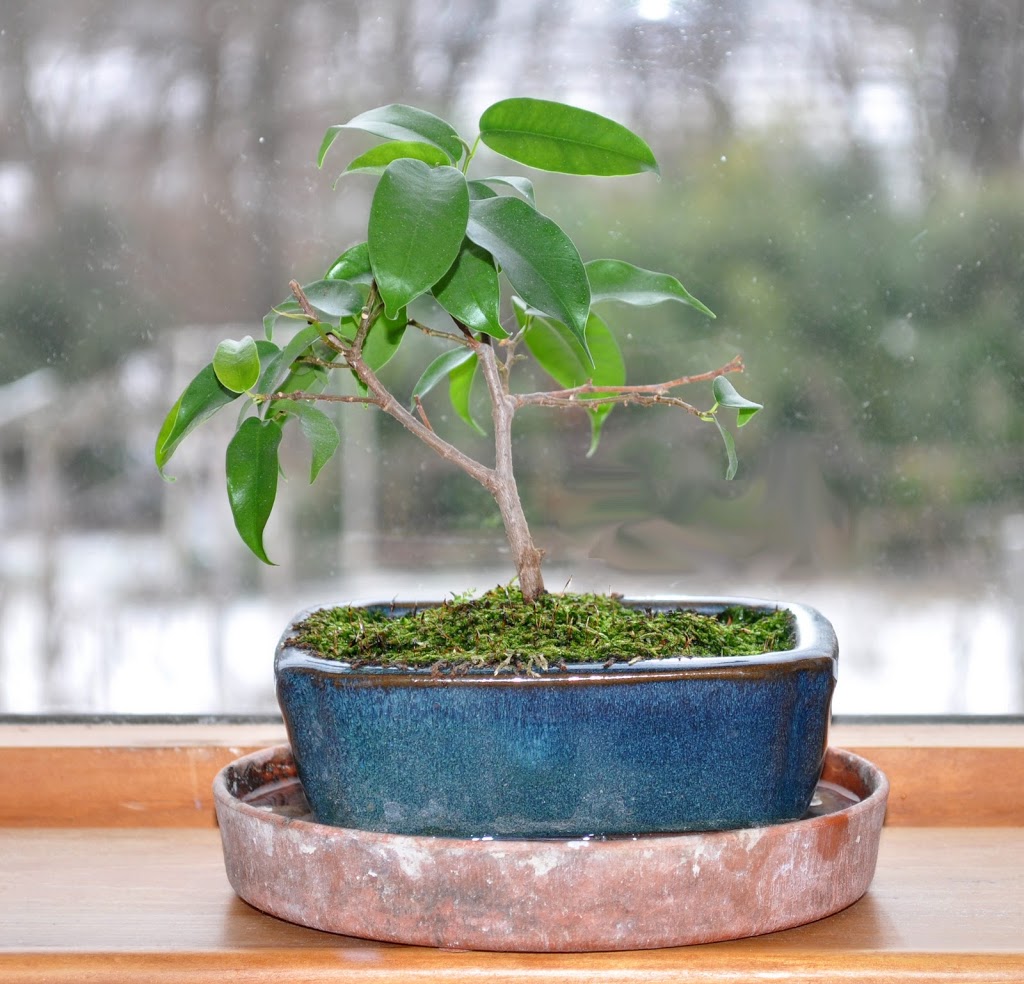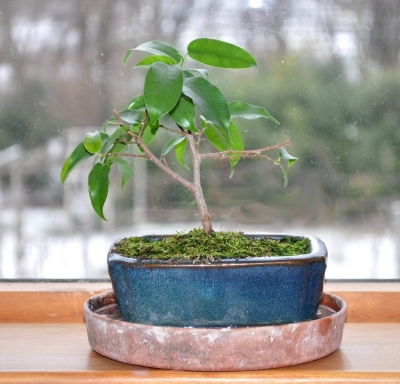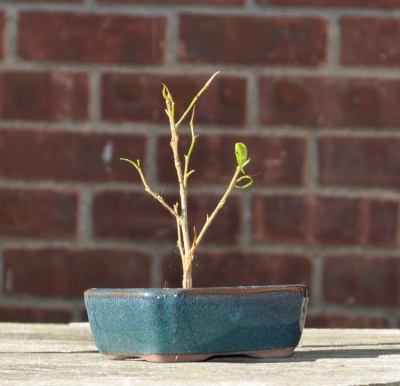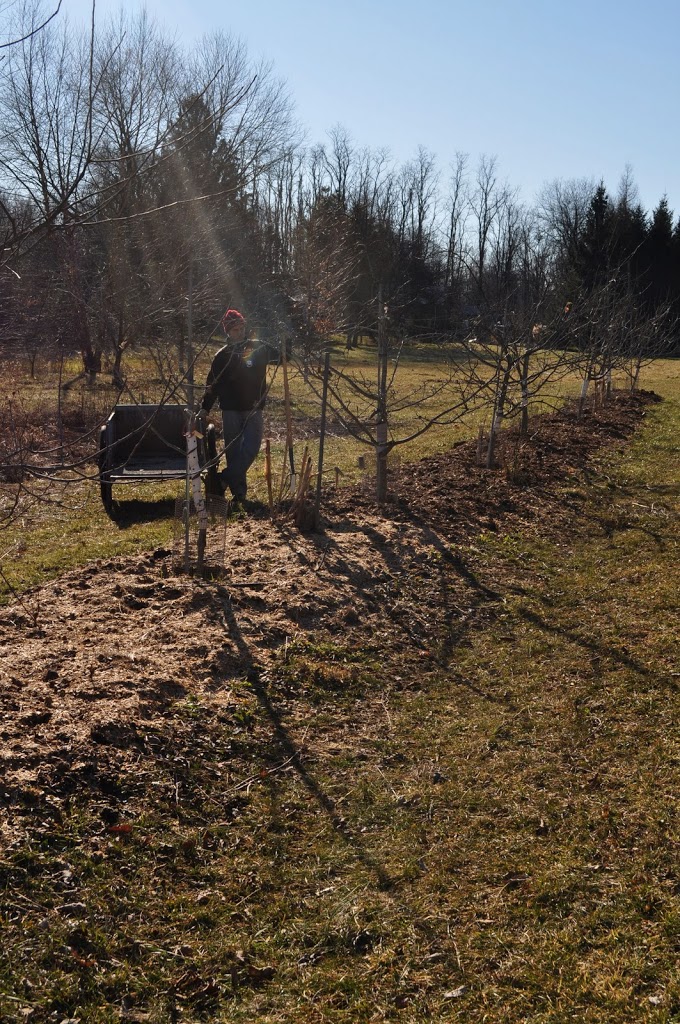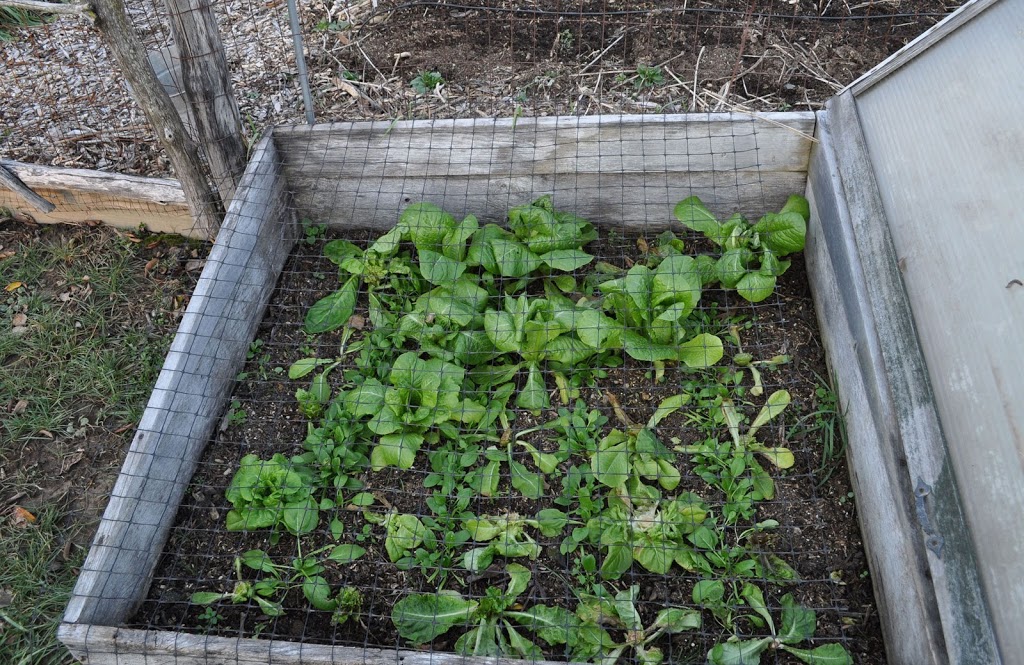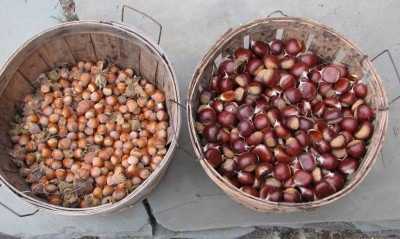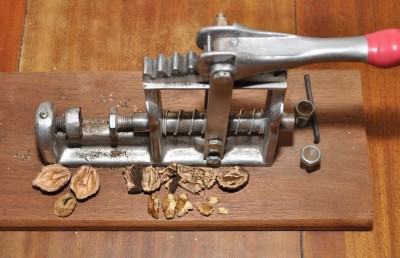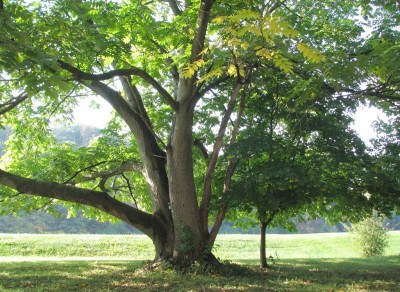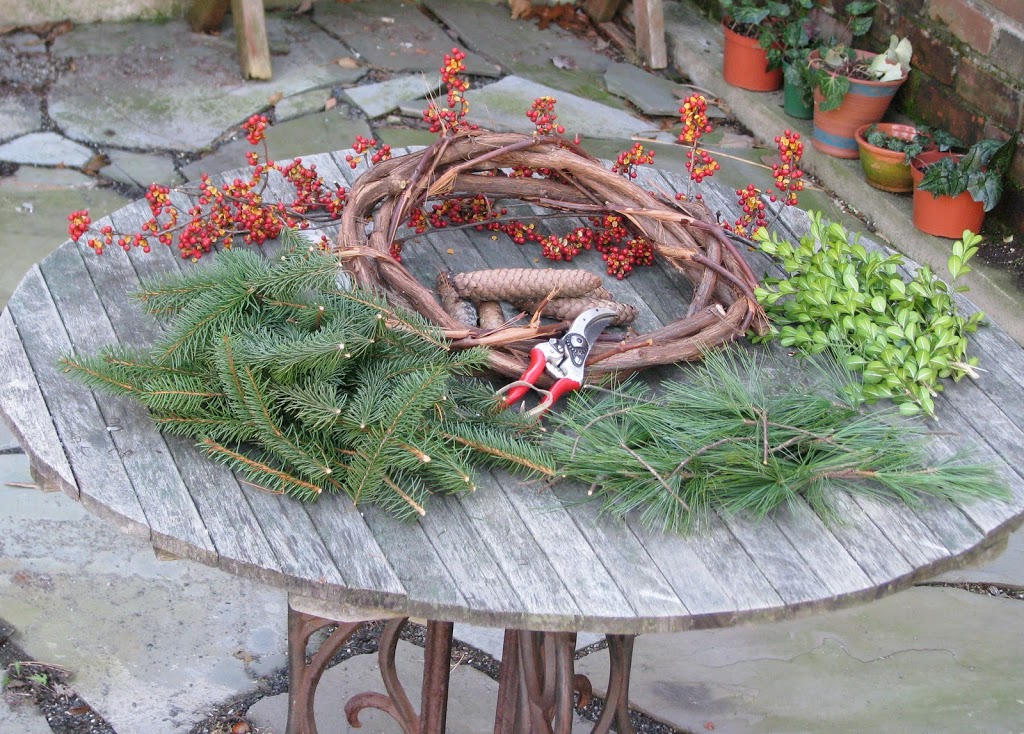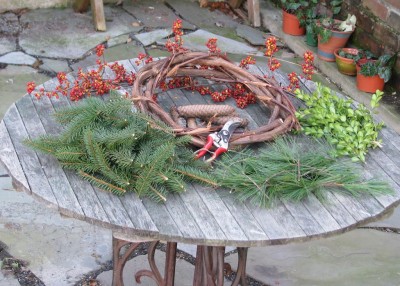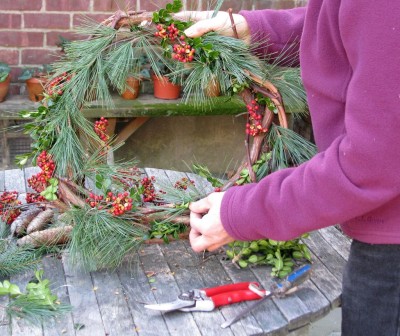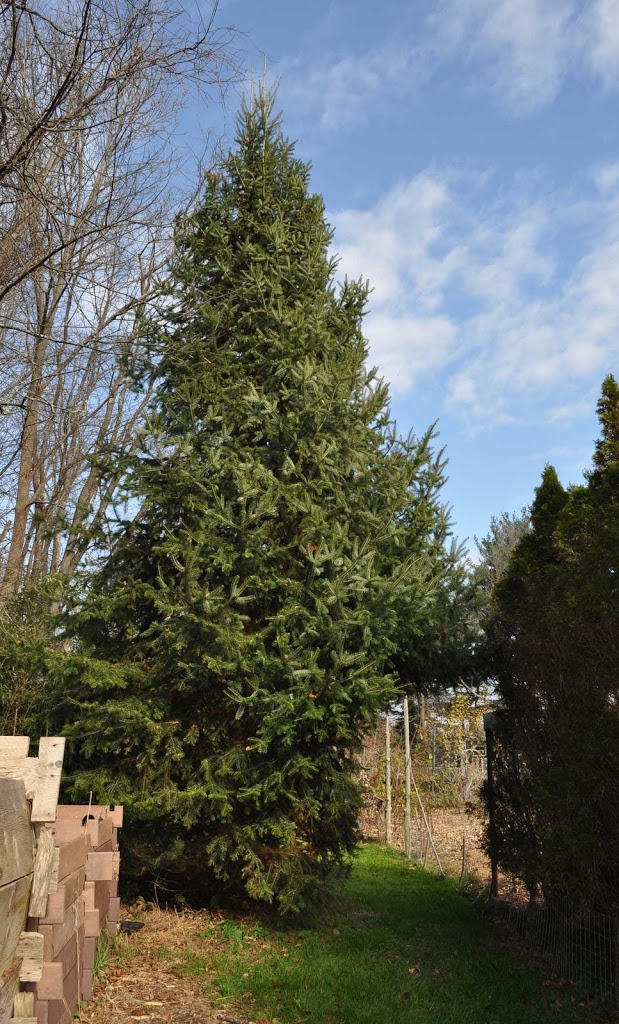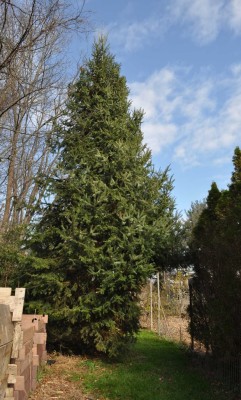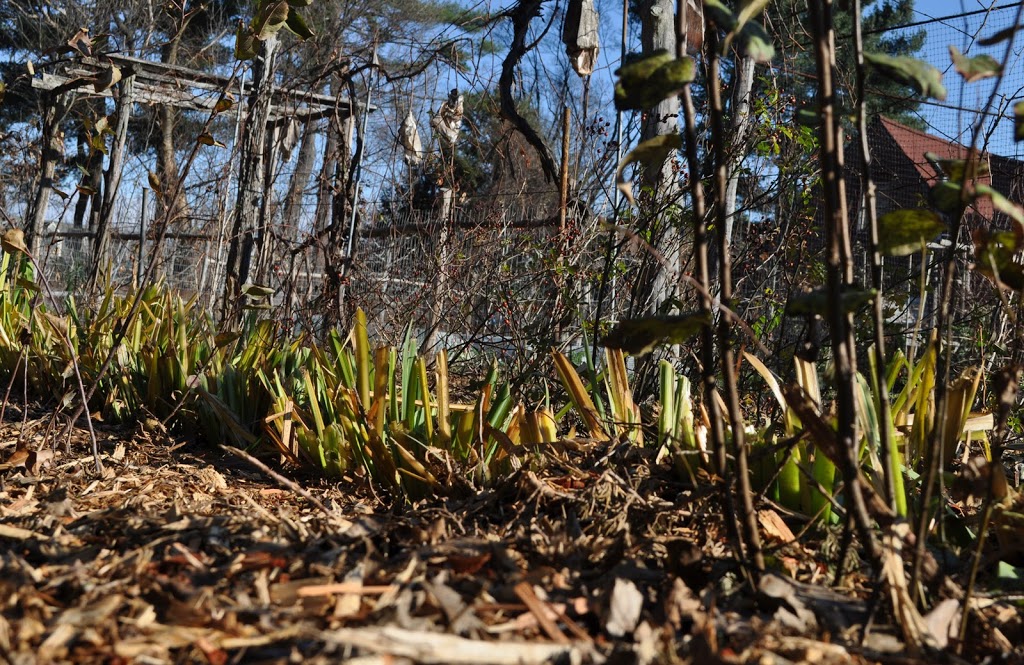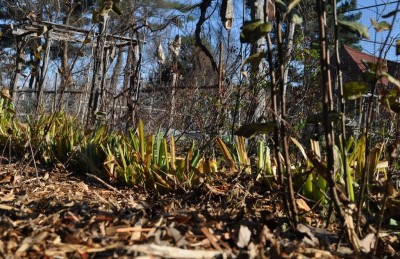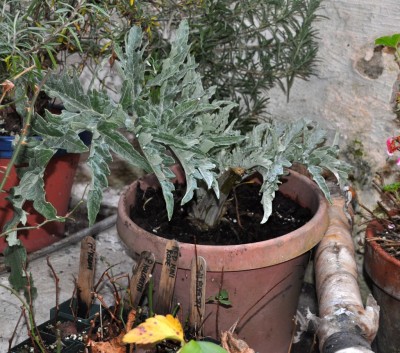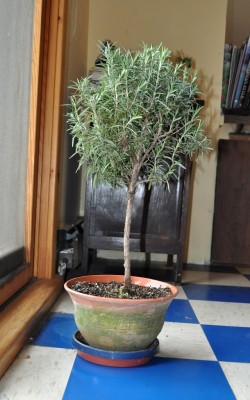ADMIRING THE GARDEN, NOW? & COLD PLANS
See previous post, below, about my new book, just out!! GROW FRUIT NATURALLY: A HANDS-ON GUIDE TO LUSCIOUS, HOMEGROWN FRUIT.
——————————————————-
Every time I walk out the back door on the way to the greenhouse, chicken coop, or compost pile, I take a look at my vegetable gardens. No, I’m not checking out what’s growing. Nothing’ growing, except for a few stalks of kale and some green tufts of mâche.
My real interest is how the vegetable garden looks, now, in midwinter. Too many people plant their vegetables in “vegetable prisons:” undersized gardens with oversized fencing relegated to a distant corner of the yard.
A vegetable garden needn’t be an eyesore, even in winter when nothing is growing in it. Consider the fence, which endures year ‘round. How about white pickets, rustic cedar or locust, or fanciful arches of rebar filled in with mesh? And no need to segregate plants, banning ornamentals from the vegetable garden. How about dwarf boxwood as accent or edging within the garden and shrubs outside the fence to soften its transition to lawn? How about some cover crops in the vegetable beds for a verdant cover, turned tawny this time of year, which also improves the soil? How about an arching arbor as an invitation to enter the garden, the arbor perhaps dressed up with clematis, whose fuzzy seedheads persist long after the flowers fade.
Once a vegetable garden becomes inviting, there’s no longer the need to relegate it to that distant corner of the yard. Move it closer to the house or, even better, the back door or, better still, right against the house, linked to it with eyes and feet. (Brick house, brick paths; white clapboard house, white picket fencing; etc.) Now you have a garden that not only looks prettier, but one that also will get more care and use because of its proximity and visual draw, ad looks good even in winter.
—————————————————-
My two vegetable gardens are hardly eyesores, but as I look upon them now, I see that they could be prettier. And one of them could be even closer to the house. (It’s now about 25 feet distant.)
I originally rented my house and the closer vegetable garden still stands where the original one was once differentiated from the then-weedy, tall grassy field by a rickety chicken-wire fence. The fence has been re-built twice, most recently with locust posts and cross-pieces, and welded wire fencing. I have dressed up its outside perimeter with billowing outpourings of trees and shrubs, including some red currant bushes which ripen tasty, brightly-colored, jeweled fruits in early summer, and a cornelian cherry tree, also with tasty, bright red fruits later in summer. In a month and a half, that cornelian cherry tree will be showered in yellow blossoms. (More on all this in my book Landscaping with Fruit.)
Although I am loathe to move the vegetable garden, with its 30 years of compost-enriched soil, closer to the house physically, I have attempted to do so visually with a series of gateways and arches. Standing in my kitchen and looking out a glass, sliding door towards the garden carries your eyes under the grape arbor over the terrace attached to the house, across a small patch of lawn, and thence through a rustic, locust arbor into the garden. The path through the garden carries you further, across the garden and then out through another arbor, the path extending into a berry patch. Further along, that path ends in yet another, arbor, this one simpler, and finally outside the planted areas to a short path that meanders mysteriously out of sight into a patch of bamboo.
Still, my landscape seems too disjunct. The gardens aren’t sufficiently tied to each other or to the surrounding landscape and house.
The vegetable garden also is now too gray and brown. The evergreen white cedars, boxwoods, and Meserve hollies around and near the gardens cheer and warm up the landscape, but more is needed.
————————————————-
The traditionally coldest part of winter is past and it hasn’t been very cold, so I may risk expanding the outdoor evergreen palette, which is somewhat limited this far north. Temperatures did drop to about 5°F a few weeks ago, but nighttime lows at the end of January were only in the 20s, nothing like the lows of minus 25° experienced many years ago.
The USDA, recognizing the shift to warmer winter temperatures, recently updated their cold hardiness zone map, available at http://planthardiness.ars.usda.gov/PHZMWeb/. Wavy lines overrunning this map bracket each zone, from 1 through 11, delineating the average annual minimum temperature within each zone. (My garden, over the years, has been re-classified from 4b to 5b.) Nursery catalogs and tags on plants in local nurseries spell out, among other bits of information, the hardiness zone limits for specific plants and varieties.
Helping me out on my search for new evergreens will be Michael Dirr’s new book, Encyclopedia of Trees & Shrubs, a weighty and informative tome in all respects. In a few years, with continued warming, I may try planting two southern evergreens that I long for here in the north: southern magnolia and camellia.





